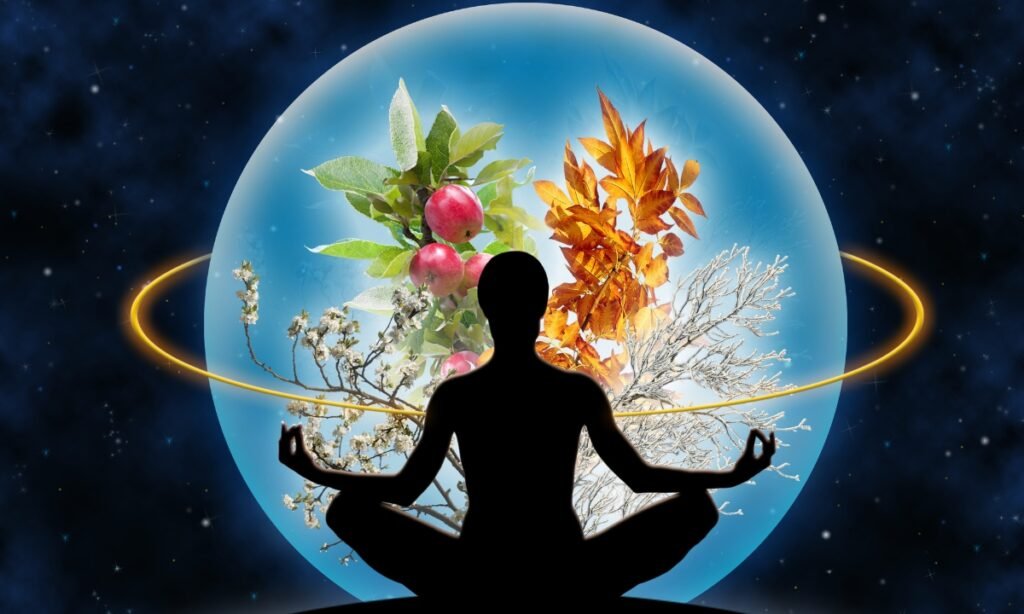Unlocking the power of intuition can transform your life, guiding you in decision-making, enhancing creativity, and providing a deeper understanding of yourself. Intuition isn’t just a mystical force; it’s a skill you can develop with practice and awareness. Let’s explore how you can hone this skill and integrate it into your daily life.
Key Takeaways
- Intuition is a skill that can be developed through practice and awareness.
- Understanding the difference between intuition and impulsivity is crucial.
- Mindfulness and meditation are effective ways to enhance intuition.
- Paying attention to emotions can provide valuable intuitive insights.
- Intuition plays a significant role in various fields, including business and creative arts.
The Role and Power of Intuition in Daily Life
Intuition is often described as a “gut feeling” or an inner voice that guides us in making decisions. It’s that sudden flash of insight that helps us solve problems or make choices without relying on conscious reasoning. But intuition is more than just a hunch; it’s a powerful tool that can be harnessed to improve our lives.
Most importantly, intuition allows us to process information quickly and efficiently, often leading to decisions that feel right without the need for lengthy deliberation. This ability is especially valuable in situations where time is limited or when faced with complex problems that require a holistic approach.

“intuition and how to use it in daily life” from www.healinghideaway.in and used with no modifications.
Understanding Intuition Beyond Gut Feelings
While intuition is commonly associated with gut feelings, it’s essential to understand that it encompasses more than just instinctive reactions. Intuition involves integrating subconscious insights with conscious awareness, allowing us to draw on past experiences and knowledge without being fully aware of it.
Consider intuition as a bridge between the conscious and subconscious mind, where both realms collaborate to provide guidance and insights. This collaboration enables us to make informed decisions that align with our values and goals. To further understand this connection, exploring mental health with acceptance can offer deeper insights into how intuition plays a role in our decision-making process.
Scientific Basis for Intuition
Research shows that intuition is rooted in the brain’s ability to process information at a subconscious level. This nonconscious processing allows us to recognize patterns and make connections that might not be immediately apparent through logical reasoning alone.
Studies suggest that intuition can significantly enhance decision-making accuracy, speed, and confidence. For instance, experts in various fields often rely on their intuitive abilities to make quick, effective decisions based on years of experience and accumulated knowledge.
Psychological Benefits of Tapping Into Intuition
Tapping into your intuition offers numerous psychological benefits, including increased self-awareness, improved problem-solving skills, and enhanced creativity. By trusting your inner voice, you can gain a deeper understanding of yourself and your motivations, leading to personal growth and fulfillment.
Besides that, intuition can help reduce stress and anxiety by providing clarity and direction in uncertain situations. When you learn to trust your intuition, you become more confident in your ability to navigate life’s challenges and make decisions that align with your true self.
Effective Tips for Enhancing Intuition
- Practice mindfulness and meditation to quiet the mind and enhance intuitive awareness.
- Pay attention to your emotions and use them as a guide for intuitive insights.
- Trust your first impressions and learn to differentiate between intuition and impulsivity.
- Keep a dream journal to explore subconscious messages and intuitive guidance.
- Engage in creative activities to stimulate intuitive thinking and expression.
Developing your intuition requires intentional practice and a willingness to listen to your inner voice. Here are some effective tips to help you enhance your intuitive abilities:
Pay Attention to Your Emotions
Emotions are powerful indicators of intuition, providing valuable insights into our inner world. By paying attention to your emotions, you can uncover intuitive messages that guide you in decision-making and personal growth. For more on this, explore how acceptance can boost mental health.
For example, if you feel uneasy about a particular situation, it might be your intuition signaling that something isn’t right. Conversely, a sense of excitement or peace may indicate that you’re on the right path. If you’re interested in understanding more about these feelings, you can explore body language types and examples to gain deeper insights.

“Meditation/Mindfulness …” from manhattanmentalhealthcounseling.com and used with no modifications.
Practice Mindfulness and Meditation
Mindfulness and meditation are powerful practices for enhancing intuition. By quieting the mind and focusing on the present moment, you create space for intuitive insights to emerge.
Regular meditation can help you develop greater self-awareness and attune yourself to your inner voice. As you become more mindful, you’ll find it easier to recognize and trust your intuitive guidance.
Trust Your First Impressions
First impressions often hold valuable intuitive insights. When you meet someone new or encounter a new situation, pay attention to your initial feelings and reactions. These impressions can provide important clues about the underlying dynamics at play.
Keep a Dream Journal
Dreams are a rich source of intuitive guidance, offering insights from the subconscious mind. By keeping a dream journal, you can explore the messages and symbols that appear in your dreams and gain a deeper understanding of your intuitive self.
- Write down your dreams as soon as you wake up to capture the details.
- Look for patterns and recurring themes that may hold intuitive significance.
- Reflect on how these dream insights relate to your waking life.
These practices can help you tap into your intuition and integrate it into your daily life, empowering you to make decisions that align with your true self.
Explore Creative Activities
Engaging in creative activities is a fantastic way to stimulate your intuition. Creativity and intuition are closely linked, as both involve thinking beyond the conventional and tapping into deeper layers of the mind. When you immerse yourself in creative pursuits, you allow your mind to wander freely, opening the door to intuitive insights.
Try activities like painting, writing, or playing a musical instrument. These activities encourage you to express yourself without overthinking, fostering a stronger connection to your intuitive self. As you engage in these creative endeavors, notice how your intuition guides your choices and expressions.
Common Misconceptions About Intuition
Many people misunderstand intuition, often confusing it with impulsivity or emotional bias. It’s essential to clarify these misconceptions to fully harness the power of your intuition.
Intuition vs. Impulsivity
Intuition and impulsivity might seem similar, but they are fundamentally different. Intuition is a thoughtful process that involves subconscious insights, while impulsivity is a quick reaction often driven by immediate desires or emotions.
To distinguish between the two, consider the feelings accompanying your decision. Intuition typically brings a sense of calm and certainty, while impulsivity may leave you feeling anxious or uncertain. Taking a moment to pause and reflect can help you discern whether you’re acting on intuition or impulse. If you’re feeling anxious, exploring ways to reduce stress and anxiety can be beneficial.
Myths About Intuition’s Accuracy
Another common misconception is that intuition is always accurate. While intuition can be incredibly insightful, it’s not infallible. Intuitive insights are influenced by past experiences, emotions, and biases, which can sometimes lead to errors. Understanding the development of wisdom can help in refining intuitive abilities and minimizing these errors.
Therefore, it’s crucial to balance intuition with logic and evidence. Use your intuitive insights as a starting point, then gather additional information to make well-rounded decisions. For more on developing balanced judgment, explore these wisdom development methods.
Intuition and Emotional Bias
Emotional bias can cloud intuition, making it challenging to trust your inner voice. Emotions can sometimes distort your perception of a situation, leading to decisions that don’t align with your true intentions. For more insights, explore what intuition is and why it’s important.
To minimize emotional bias, practice self-awareness and emotional regulation. Recognize when emotions are influencing your intuition and take steps to address them before making decisions.

“Power of Intuition: Tap into Your Inner …” from makesmepure.com and used with no modifications.
Applications of Intuition Across Various Fields
Intuition is not limited to personal decision-making; it plays a significant role in various professional fields, enhancing problem-solving and creativity.
Decision-Making in Business
In the business world, intuition can be a valuable asset. Successful entrepreneurs often rely on their gut feelings to make quick, strategic decisions. Intuition helps them navigate uncertainty and identify opportunities that may not be immediately apparent through data analysis alone.
For instance, a business leader might have a hunch about a new market trend or a potential partnership. By trusting their intuition and conducting further research, they can capitalize on opportunities that others might overlook. Understanding the science behind body language can also enhance their ability to make informed decisions in such situations.
Problem Solving in Creative Arts
Creative professionals, such as artists and writers, often use intuition to solve problems and generate innovative ideas. Intuition allows them to explore new perspectives and experiment with unconventional approaches.
Consider a painter who feels drawn to a particular color palette without knowing why. By trusting their intuition, they create a masterpiece that resonates with viewers on a deeper level.
Health and Healing Practices
In health and healing practices, intuition can guide practitioners in understanding their patients’ needs and tailoring treatments accordingly. Intuitive insights can help identify underlying issues that may not be immediately visible through standard diagnostic methods.
For example, a holistic healer might sense that a patient’s emotional state is affecting their physical health. By addressing these emotional factors, they can provide more comprehensive care.
Developing Intuition: Step-by-Step Guide
Now that we’ve explored the power and applications of intuition, let’s dive into a step-by-step guide to developing your intuitive abilities.
First, set the right mindset. Approach intuition with an open mind and a willingness to learn. Recognize that developing intuition is a journey that requires patience and practice.
Next, incorporate daily practices to strengthen your intuition. These can include meditation, journaling, and spending time in nature. Each practice helps you connect with your inner self and enhances your intuitive awareness.

“How to Master Your Mindset – Move With Us” from movewithus.com and used with no modifications.
Setting the Right Mindset
Embracing intuition starts with setting the right mindset. You must approach this journey with openness and a willingness to explore the unknown. Intuition isn’t about having all the answers; it’s about trusting the process and being receptive to the insights that emerge.
Begin by acknowledging that intuition is a valuable skill you can develop. Let go of any skepticism or doubt, and instead, cultivate a sense of curiosity and wonder. This mindset will create a fertile ground for your intuition to flourish.
Daily Practices to Strengthen Intuition
Incorporating daily practices into your routine can significantly enhance your intuitive abilities. These practices help you connect with your inner self and heighten your awareness of subtle cues and insights.
Start with meditation. Spend a few minutes each day in quiet reflection, focusing on your breath and allowing your thoughts to settle. Meditation calms the mind, creating space for intuition to surface.
Journaling is another powerful tool. Write about your thoughts, feelings, and experiences, paying attention to any intuitive insights that arise. This practice helps you recognize patterns and gain clarity on your intuitive messages.
Integrating Intuition with Logical Thinking
While intuition is a valuable guide, it’s essential to balance it with logical thinking. This integration ensures that your decisions are well-rounded and informed.
When faced with a decision, start by listening to your intuition. Notice any immediate feelings or insights that come to mind. Then, gather relevant information and analyze the situation logically. Compare your intuitive impressions with the facts at hand.
Consider the following example of wisdom development to enhance your personal growth.
Imagine you’re considering a job offer. Your intuition tells you it’s a great opportunity, but the salary is lower than expected. By integrating intuition with logic, you might decide to negotiate the salary while still pursuing the role, aligning both your intuitive and rational considerations. To enhance your decision-making process, consider these wisdom development methods for better well-being and insights.
This balanced approach allows you to make decisions that align with your values and goals, while also considering practical factors.
Frequently Asked Questions
Let’s address some common questions about intuition to further deepen your understanding and confidence in this skill.
Can intuition be improved?
Yes, intuition can be improved with practice and awareness. Like any skill, the more you focus on developing your intuition, the stronger it becomes. Incorporating mindfulness, meditation, and journaling into your routine are effective ways to enhance your intuitive abilities.
Additionally, engaging in creative activities and paying attention to your emotions can further sharpen your intuition. As you become more attuned to your inner voice, you’ll find it easier to trust and rely on your intuitive insights.
“Intuition is a learnable skill.” By practicing regularly and staying open to new experiences, you can cultivate a deeper connection with your intuitive self.
Remember, patience is key. Intuition development is a journey, and progress may take time.
How does intuition help in decision-making?
Intuition aids decision-making by providing quick, insightful guidance based on subconscious processing. It allows you to recognize patterns and make connections that may not be immediately apparent through logical analysis alone.
By integrating intuition with rational thinking, you can make well-informed decisions that align with your values and goals. Intuition often brings a sense of clarity and confidence, helping you navigate uncertainty and complexity with ease.
Are there any risks in relying on intuition?
While intuition is a powerful tool, it’s not infallible. Intuitive insights can be influenced by past experiences, emotions, and biases, which may lead to errors in judgment. Therefore, it’s essential to balance intuition with logic and evidence. For further insights, explore these wisdom development methods to enhance your decision-making process.
By combining intuitive insights with factual information, you can mitigate potential risks and make more informed decisions. This balanced approach ensures that your choices are grounded in both intuition and reality.
How can I distinguish intuition from fear?
Distinguishing intuition from fear can be challenging, as both can evoke strong emotions. However, intuition typically brings a sense of calm and certainty, while fear often creates anxiety and doubt.
To differentiate between the two, pay attention to the underlying feelings. Intuition usually feels right and aligns with your values, whereas fear is often driven by insecurities or past experiences. Taking time to pause and reflect can help you discern the source of your emotions.
Is intuition the same as instinct?
Intuition and instinct are related but distinct concepts. Instinct refers to innate, automatic responses to stimuli, often driven by survival mechanisms. In contrast, intuition involves subconscious insights that draw on past experiences and knowledge.
While both intuition and instinct provide valuable guidance, intuition is more nuanced and involves a deeper level of processing. By understanding the differences between the two, you can better harness their unique strengths in various situations.










Leave a Reply